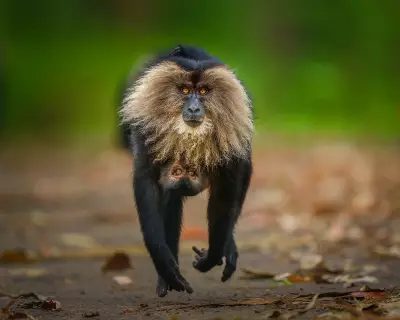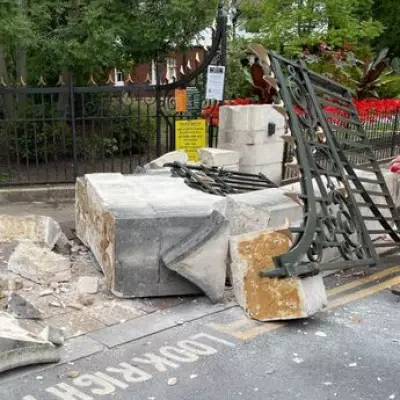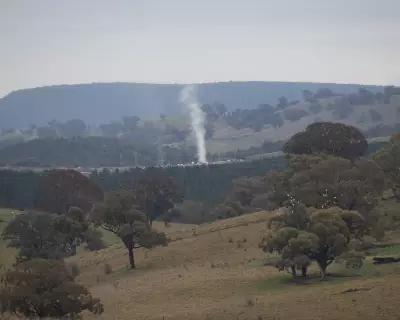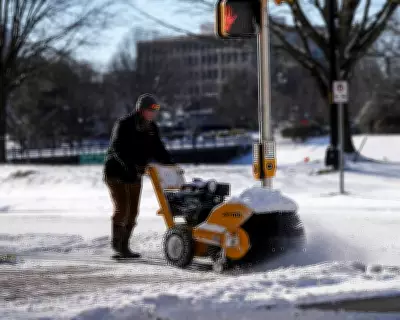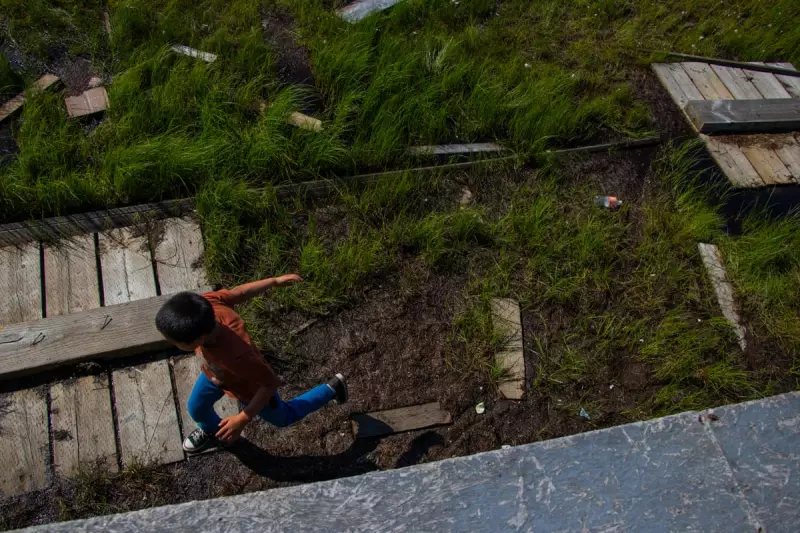
In the vast Alaskan wilderness, the Yup'ik village of Nunapitchuk is engaged in a desperate battle against the very ground beneath their feet. As climate change accelerates the melting of permafrost that has supported their community for generations, residents are witnessing their homes literally sinking into the earth.
A Community on Shifting Ground
The transformation is visible everywhere in this remote settlement of approximately 500 people. Buildings tilt at alarming angles, roads buckle and warp, and the boardwalks that connect the community are constantly needing repair. "The ground is getting softer and softer," explains lifelong resident Frank Andrew. "It's like the earth is turning to mush beneath us."
The Science Behind the Sink
Permafrost—ground that has remained frozen for at least two consecutive years—has been the stable foundation for Arctic communities for centuries. But rising temperatures are causing this frozen layer to thaw, creating a landscape of uncertainty and danger.
Scientists warn that what's happening in Nunapitchuk represents a preview of challenges facing northern communities worldwide. The rate of warming in Alaska is two to three times faster than the global average, making the permafrost crisis particularly acute in this region.
The Human Cost of Melting Ground
For the residents of Nunapitchuk, the changing landscape means:
- Homes becoming uninhabitable as foundations shift and walls crack
- Traditional subsistence hunting grounds becoming inaccessible
- Increased difficulty in storing food in cellars that now flood regularly
- Constant infrastructure repairs draining limited community resources
An Impossible Choice: Adapt or Leave
Like many Alaska Native villages facing similar challenges, Nunapitchuk confronts a heartbreaking dilemma. The cost of relocating the entire community could exceed $100 million, while staying requires increasingly expensive adaptation measures that may only provide temporary solutions.
"Our ancestors chose this place for a reason—it provided everything we needed," reflects community leader Catherine Beans. "Now we're being forced to consider leaving the land that defines who we are as Yup'ik people."
A Global Warning from the Arctic Frontline
The struggle of Nunapitchuk serves as a stark reminder that climate change is not a distant threat but a present reality for vulnerable communities. As the permafrost continues to thaw, it releases additional greenhouse gases, creating a feedback loop that accelerates global warming.
While engineers work on technical solutions and politicians debate funding, the people of Nunapitchuk continue their daily lives on increasingly unstable ground, living with the consequences of a warming world that they did little to create.


